Columbus, OH – The State of Ohio, joined by the States of Alaska, Arkansas, Idaho, Mississippi, and Nebraska requested leave yesterday to file an amicus brief supporting the effort to persuade the federal court in Lexington, KY to strike down the Horseracing Integrity and Safety Act (HISA) as unconstitutional.
The six amicus states join the States of Oklahoma, West Virginia, and Louisiana, which are already plaintiffs in the case, along with the United States Trotting Association, several state racing commissions, the Oklahoma Quarter Horse Racing Association, several Native American-owned race tracks, and Hanover Shoe Farms, Inc.
In the amicus brief, the States explain that the private corporation that HISA sets up to regulate the racing industry amounts to a private club having governmental powers. It is settled law that the Constitution forbids Congress to set up a private entity to exercise governmental power over the States and the people in them.
Accordingly, the States argue, the Court should declare HISA unconstitutional.

“The Congressional Research Service tried to explain these constitutional problems to HISA’s legislative sponsors as long ago as 2015,” said USTA President Russell Williams. “The USTA lobbied intensively against HISA and its predecessor bills since then, trying to point out why unconstitutional legislation simply compounds the problems that it was meant to address. But members of the House and Senate went ahead anyway, at the urging of their wealthy racing sponsors, heedless of the constitutional defects now being litigated. Legislation instigated by an elite sliver of an industry should be approached with caution, not slipped into the middle of a 5,500-page, must-pass appropriation measure as HISA was.”
“A private entity should have no more power over state functions than the AAA, another private entity, has over issuing, suspending, or revoking motor vehicle driver’s licenses,” stated Joe Faraldo, chairman of the USTA Board of Directors. “Unfortunately, overreaching by private entities is a recurrent problem and the courts have had to deal with it before,” continued Faraldo, quoting the New York Court of Appeals from a case decided in 1951:
“We are told that benefits of great worth to the maintenance of proper control over race meetings and to the improvement of the breed of horses have been derived from action by The Jockey Club. Even assuming that fact we are mindful that “nothing is more certain than that beneficent aims, however great or well directed, can never serve in lieu of constitutional power.”
“This litigation could take years to reach its conclusion, but we are prepared to stay the course,” added Williams. “When the courts have consigned HISA to the scrap heap of unconstitutional legislation, we have a better plan to offer. “We are ready with draft legislation that would be constitutional, would better protect the welfare of the horse than HISA, and would not impose HISA’s heavy costs that threaten to diminish racing to the status of a hobby.
“Our Racehorse Health and Safety Act originated with veterinarians and is therefore grounded in equine medical science. Racing regulators and racing participants from all the racing breeds have contributed to it. It would have federal oversight under the Compact Clause of the U.S. Constitution, but the States would administer it. It is open to public and congressional debate plus input from all participants in racing, something that was never the case with HISA,” concluded Williams.
To read the draft of the Racehorse Health and Safety Act, click here
From the USTA Communications Department

 USA
USA Canada
Canada Australia
Australia New Zealand
New Zealand Europe
Europe UK / IRE
UK / IRE



